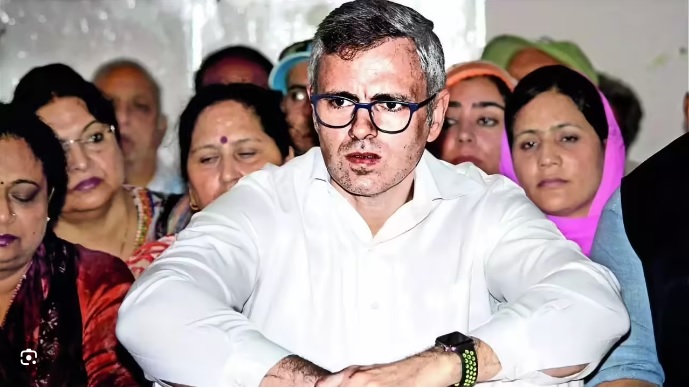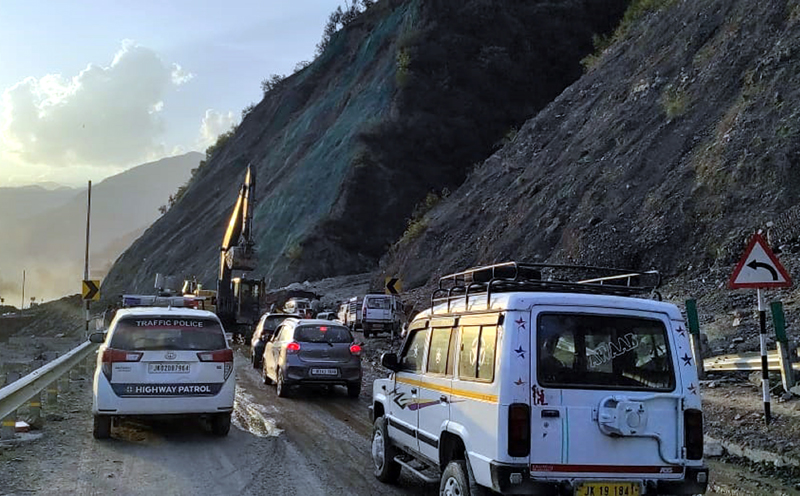Omar Abdullah’s Signature Campaign on J&K Statehood: Symbolism or Hypocrisy?
By: Javid Amin | 17 Aug 2025
In politics, symbols matter. They can inspire hope, mobilize communities, and sometimes act as the thin thread that binds fractured societies. But when symbols are mistaken for substitutes for action, they quickly degenerate into hollow theatrics. This is the dilemma now unfolding in Jammu & Kashmir (J&K), where Chief Minister Omar Abdullah has announced a massive door-to-door signature campaign to demand the restoration of statehood.
While the announcement was intended to showcase grassroots mobilization, it has triggered a storm of criticism. Opposition leaders, political commentators, and even sections of civil society have branded it a “circus of hypocrisy,” “mere theatrics,” and “betrayal of mandate.”
Why such sharp words? Because Omar Abdullah, once dismissive of the political worth of signature drives, now appears to be weaponizing the same tool—not as an outsider challenging power, but as the head of government, entrusted with legislative authority.
This article takes a deep dive into the controversy:
-
Why Omar Abdullah’s campaign is seen as political theatre.
-
How opposition parties are framing it as a retreat from constitutional responsibility.
-
The history of signature campaigns in Kashmir’s political landscape.
-
And most importantly, the dangerous precedent it sets when power borrows the tools of the powerless.
Omar Abdullah’s Announcement: The Campaign Blueprint
On Independence Day, Omar Abdullah declared:
“We will launch a massive signature campaign across Jammu & Kashmir. Over the next 8 weeks, we will reach all 90 Assembly constituencies, gathering signatures in support of restoring J&K’s Statehood. We will not rest until our rights are restored.”
The campaign is designed to:
-
Cover all 90 Assembly constituencies.
-
Collect lakhs of signatures over an eight-week period.
-
Submit them before the Supreme Court and the Centre, coinciding with the Court’s deadline for the Union government’s response on statehood.
On paper, the move looks like a democratic exercise in “public voice-building.” But politics is never just about paper—it’s about perception, credibility, and constitutional legitimacy. And this is where Omar’s campaign faces trouble.
Opposition Reactions: “Theatrics, Betrayal & Hypocrisy”
Waheed Para (PDP)
-
Called it a “retreat and betrayal.”
-
Accused Omar of normalizing August 5, 2019, when Article 370 and statehood were revoked.
-
Said reducing the fight for statehood to symbolic gestures is a way of evading responsibility.
Sajad Lone (People’s Conference)
-
Labelled the move “nothing but theatrics.”
-
Asked why Omar did not pass a formal Assembly resolution, which would have carried constitutional weight.
-
Warned that submitting signatures instead of resolutions to the Supreme Court risks turning statehood into a populist spectacle.
-
His cutting remark:
“Don’t set the stage for denial of statehood. Act like a leader. Don’t throw tantrums.”
Inam Un Nabi (Awami Ittihaad Party)
-
Termed it a “shameful confession of political irrelevance.”
-
Accused NC of surrendering to BJP and dodging its electoral promises.
-
Said the move reflects weakness disguised as public mobilization.
Other Voices of Criticism
-
Congress leaders have warned that signature campaigns “cannot substitute legislative action.”
-
Independent activists argue that the government is outsourcing responsibility back to the people, after those very people already gave NC a clear electoral mandate.
-
Some critics have compared it to civil society gimmicks, unworthy of a ruling party with access to the Assembly and Parliament.
The Constitutional Angle: Signatures vs Resolutions
Opposition leaders raise a crucial point: what is the legal weight of signatures?
-
A signature campaign is a civil society tool—it has no binding constitutional or legal authority.
-
An Assembly resolution, on the other hand, carries institutional dignity and becomes part of the democratic record.
By choosing signatures over resolutions, Omar Abdullah is seen as:
-
Avoiding legislative confrontation.
-
Shielding BJP from taking a parliamentary stance.
-
Reducing a serious constitutional matter into a performative exercise.
Even within his party, whispers suggest that Omar is playing for time—stretching the clock until the Supreme Court’s deadline runs out, without forcing the Centre into a clear commitment.
When Power Uses Tools of the Powerless
Here lies the core paradox:
-
Signature campaigns are tools of the disempowered—activists, students, NGOs, and grassroots citizens with no direct authority.
-
Governments, in contrast, are elected to legislate, represent, and act.
When a Chief Minister launches a signature drive, it signals one of three things:
-
A lack of political conviction.
-
An evasion of real legislative responsibility.
-
A manipulation of public sentiment for optics.
In the words of one critic:
“The munsif we were looking at for justice have become muddai now—to kill time and fool people.”
Hypocrisy Called Out: The 6000 Signatures Episode
During the protests for rationalisation of reservation, more than 6000 signatures were submitted to Omar Abdullah by candidates demanding reform.
His response?
“These signatures have no legal bindings. Things don’t work like that.”
Fast forward a year: the same Omar Abdullah now embarks on a door-to-door signature campaign—not for a smaller administrative reform, but for statehood itself.
This glaring U-turn has amplified accusations of hypocrisy, doublespeak, and political opportunism.
The People Have Already Spoken: 2024 Mandate
Critics argue that no campaign is louder than the ballot box.
-
In the 2024 Assembly elections, people gave the National Conference a clear mandate, voting on Omar’s promise to restore statehood and fight for Article 370.
-
That mandate, critics say, is more powerful than any signature campaign.
By returning to symbolic gestures, Omar Abdullah risks diluting the authority of elections and insulting the people who already spoke through their votes.
Theatrics vs Action: Why Timing Matters
The timing of Omar’s announcement has drawn suspicion:
-
The Supreme Court gave the Centre eight weeks to respond on statehood.
-
Omar’s campaign will consume exactly those eight weeks.
-
No Assembly resolution has been passed.
-
No concrete legal petition has been filed.
The opposition’s charge is clear: this is not strategy, but stalling.
Vulnerable Citizens as Political Shields
Another concern is the repeated use of ordinary Kashmiri citizens as shields in the statehood battle.
-
People have already voted, protested, and petitioned.
-
To ask them again for signatures shifts the burden of responsibility from government to governed.
-
Critics say the government should protect its people, not push them to shoulder political struggles repeatedly.
Judiciary and the “Tom, Dick & Harry” Syndrome
Sajad Lone raised an important warning:
“Two people get up, hire a lawyer, approach the Supreme Court to adjudicate on a matter which pertains to our destiny. Petitioners will be invented. This is dangerous.”
By relying on signatures instead of legislative resolutions, Omar Abdullah risks presenting the judiciary with emotion without constitutional mandate.
This risks reducing statehood—a matter of national importance—into a populist spectacle.
Bottom-Line: The Need for Leadership, Not Lip Service
The controversy over Omar Abdullah’s signature campaign is not just about one tactic—it reflects the deeper crisis of political leadership in J&K.
-
Civil society campaigns are for the powerless.
-
Governments are for legislation, policy, and action.
By borrowing the tools of the powerless, Omar risks appearing weak, evasive, and hypocritical.
J&K today needs:
-
Strong Assembly resolutions.
-
Unified political action across parties.
-
Clear legal representation in the Supreme Court.
Not another symbolic circus.
The people of J&K have done their part. They have voted, protested, and spoken. Now, it is time for their leaders—especially those in power—to do theirs.



